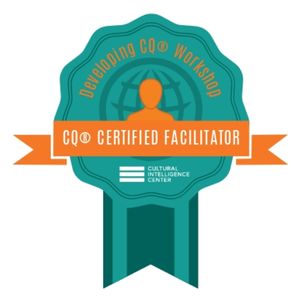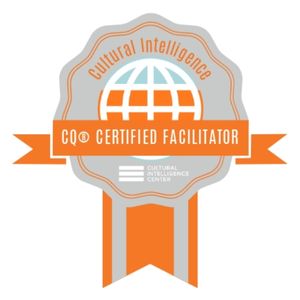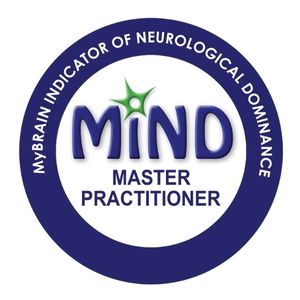The role of interview. Interviews are a key part of the recruitment process, and a great chance for you to make a good impression and share your skills and experience. However, they are also an important part of assessing whether the company, team and role are a good fit for you, and you should approach this as a mutually beneficial conversation, rather than only as a one-sided conversation to answer questions about yourself and your experience.
Here I share 5 Strategies for making a positive impression in your next job interview including my winning interview tips and interview techniques.
Jump to section
1. First impressions happen before the interview has started
The interview has already started by the time you sit down in a room with the interviewer(s) and they ask their first question. In reality, the interview process starts as soon as you arrive. So consider what you wear to match the formality of the company, arrive early so you can get comfortable with the environment, and make the effort to chat about relevant topics on the way to the interview room, demonstrating your positivity and energy, as well as your insights on the company from these early moments.
It is also important to build rapport and make a good impression with your verbal and non-verbal communication. These communication elements are influenced by cultural context, so research what works and take a culturally intelligent approach. For example, if you are interviewing with companies in the US and UK, then making confident eye contact, a firm handshake, and speaking clearly and loud enough are important success factors. In other cultures, these behaviours may be seen as arrogant or too aggressive, so do your research on relevant cultural values and adjust accordingly.
2. What is your motivation for the interview?
What’s your ‘why’? Wanting a job is not enough, so be clear on your reasons for this company, this team and this specific role. This is particularly important if you have been job searching for a while. The interviewer(s) want to know that you genuinely want to work for them, and be part of their team for now, and in your future career, so make sure your passion for this job role comes through.
3. Match your skills and experience to the role
A simple exercise you can do is to draw a line down a piece of paper and write ‘They need’ on one side, and ‘I offer’ on the other side. Read the job description, and write down under ‘They need’ all the skills and experience they are looking for in an ideal candidate, which could come up in questions in the interview. Then see how you match their desired areas and write down under ‘I offer’ your key knowledge and skills, plus examples of situations where you have demonstrated these. This is great preparation for the interview.
Preparing for your next job interview?

Build your confidence when preparing for job applications and interviews with communication coaching and feedback.

4. Know what they will ask
There are a number of common interview questions that regularly come up, including ‘Tell me about yourself’, inviting you to share your strengths and weaknesses, and giving examples of learnings when situations have gone wrong.
Competency based or behavioural interview questions are particularly popular in the UK and US, where you are asked to give an example of a time when you demonstrated a specific skill or behaviour.
Remember that when answering these types of questions that your answers need to match the cultural context of the company. For example, in the UK or US it is important to empahasise individual achievements and what individual actions you took in the team to deliver results, whereas in more collectivist cultures such as in Asia, it is important to talk about how you worked with the team to achieve a goal. Overall, it is good to anticipate what the interviewer will be looking for, and there are some good examples shared here by ‘Resources for Employers’.
5. Plan for a strong end to the interview
Remember the interview is a 2-way conversation and you should prepare questions to ask the interviewer(s) that demonstrate your interest in the role and your future at the company.
Close the interview with a ‘thank you’ and share how much you enjoyed meeting them, so you leave the interviewer(s) with a positive impression. Immediately after the interview capture your learnings, recall questions they asked and take note on how you could improve for the next interview, which is good to do while it’s fresh in your memory. Finally, send a ‘thank you’ email after the interview, which is a great way to stand out and continue to build rapport even after the meeting has finished. It’s all about closing on a positive note, as Experis says in their interview tips.
Different types of interview
A final note on different types of interview. Interviews are not only about meeting in person, but are increasingly diverse in format.
Video interviews are popular as a first screener, and to prepare for these, make sure your tech is working before the call, and dress appropriately, as if meeting in person. You should also focus even more on getting the non-verbal communication elements right to create rapport, by creating a professional, neutral background, and adjusting your hand gestures and facial expressions to make sure they are clear and visible.
Group interviews require you to demonstrate strong listening skills, empathy and negotiation, as well as respect for others and being able to share your own skills and experience, and this can be a delicate balancing act.
AI interviews are also becoming more popular where you need to record your answers to set questions, which are then analysed according to an algorithm. The success criteria are defined by the company, and these could include facial expressions (e.g. smiling, eye contact, posture), and language analysis (e.g. specific keywords, active vs. passive wording).
How can Culture Cuppa improve your interviewing skills
Whatever the type of interview you are going for, these 5 key strategies are a starting point. Victoria Rennoldson from Culture Cuppa can work with you in coaching sessions to become interview-ready, starting from building your CV, applying to the right roles, and practicing interviews with feedback so you know that your communication approach is giving you the best chance of success.





